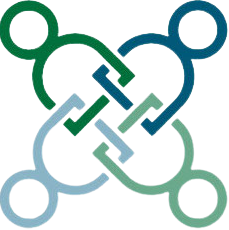
Plenaries
Opening Plenary: South African Perspectives on Community Engagement
Wednesday, August 13, 2025 at 1:45-3:00 p.m.
Engaged Scholars from South African universities have made considerable contributions to the development of the field of Community Engagement (CE). Notwithstanding these developments CE in South Africa has struggled to shed its image as an unfunded mandate. A panel of Vice-Chancellors (or their designated representatives) provide perspectives on the sustainability of the CE initiatives that their universities undertake, and the impact of these initiatives on South African society at large.
Global Scholars Plenary: Honoring 25 Years of Impact and Envisioning the Future of SLCE
Thursday, August 14, 2025 at 11:30 a.m.-12:45 p.m.
Join us for the Global Scholars Panel as we celebrate a quarter century of impact in service-learning and community engagement (SLCE). This special session features former and current IARSLCE board members reflecting on the organization’s 25-year journey, exploring key milestones, and envisioning inclusive, future-focused directions for the field.
Panelists representing diverse global regions will share their current SLCE scholarship, highlight emerging trends, and offer personal insights into the evolution of the field. This panel offers a unique opportunity to reconnect, reflect, and collaborate with SLCE leaders and emerging scholars alike as we chart the next era of impactful community engagement research—and explore IARSLCE’s role in stewarding the field forward.
Héctor Opazo Carvajal (Chile) is the Director of Innovation, Social Entrepreneurship and Creativity at the Universidad Católica Silva Henriquez, Chile and the Founder and Principal Investigator of the ABC Lab. His work focuses on the intersections of community service-learning, community-based research, youth development, educational transformation, social justice, and social innovation. He has been involved in several multinational studies about service learning and is the principal investigator of the project "Collaboratories of purpose: Building capacities for the transformation of young lives" (2021-2025), funded by the Ministry of Science, Technology, Knowledge, and Innovation (Chile). He is also leading the pioneering project to develop a second-chance school system in Chile with Fundación Súmate (Hogar de Cristo, Chile). He served as a UNESCO consultant for socio-emotional educational transformation and has authored several high-impact publications in leading magazines and publishers in the educational field globally.
Stephen Chan (Hong Kong) is the former Founding Head and present Consultant, Service-Learning and Leadership Office, Hong Kong Polytechnic University. Dr. Chan studied Electrical Engineering at University of Wisconsin-Madison and University of Rochester in USA, and worked for the National Research Council in Canada before joining PolyU. He has taught/practiced/researched in academic, cross-cultural, technology facilitated/driven, long term partnerships, and teacher development in SLCE.. He has setup and led 20+ SL projects in Mainland China, Cambodia, Vietnam, Myanmar, Indonesia, Kyrgyzstan, Philippines, Rwanda, Tanzania and South Africa. As a Board Director at IARSLCE, he initiated the Asia-Pacific Community of Practice, working hard to build up the regional group and connecting it with the global community.
Carol Ma (Singapore) is a leading expert in Service-Learning (S-L) and ageing in Asia. She heads the Gerontology Programmes and is the Senior Fellow (Experiential Learning) at the Singapore University of Social Sciences. She pioneered the S-L curriculum in Hong Kong, embedding it into higher education across the region. In Singapore, she drives curriculum development, community engagement, and applied gerontology research, championing transdisciplinary approaches to ageing. Carol also advises government-linked (e.g Silver Industry of Enterprise Singapore) and international organisations (e.g. World Health Organization, UNESCO and Uniservitate). Her work is widely recognised and has received over. She has been a visiting scholar/professor at UMass Boston and Simon Fraser University, and she was recognized as a Smart Ageing Leader (Changemaker) by the Golden Age Foundation in Hong Kong.
Carol leads impactful initiatives, including Singapore’s first geragogy guidelines, dementia care and reminiscence programmes, and WHO ICOPE-based functional assessments. She also supports older adults’ upskilling and job redesign with UNESCO Institute of Lifelong learning. Recently, she secured SG$8.95 million to establish a regional reminiscence hub promoting mental health and well-being for older adults and caregivers across Asia.
Nascira Ramia (Ecuador) is a professor of Education at Universidad San Francisco de Quito (USFQ), where she also directs the School Fab Lab, a STEAM-focused maker space that integrates community engagement and sustainability. She holds a Doctorate in Education (Developmental Studies) and a Master’s in Curriculum and Teaching from Boston University.
Her work centers on innovative, socially engaged education, particularly service-learning as a strategy for meaningful student development and community impact. Dr. Ramia served on the board of the International Association for Research on Service-Learning and Community Engagement (IARSLCE), where she co-led the Intercultural Equity Committee.
She has collaborated with colleagues from several institutions and organizations across North America a Europe to promote educational research in schools and universities. She has contributed as a science education expert to the OECD’s PISA-D and PISA 2025 projects. With over 25 years in the field, she regularly shares her work at international conferences and events across the Americas and beyond.
Nicole Webster’s (USA) career as a researcher began in the College of Agricultural Sciences at Penn State University, where she developed a global research agenda focused on youth, agriculture, and community development—particularly in rural communities across the Global South. Through partnerships with Ministries of Agriculture and Education, Nicole has led international research teams and projects addressing local challenges and building community resilience. This work has laid the foundation for her current leadership as Associate Dean for Faculty Affairs in the College of Health and Human Development, where she continues to champion inclusive excellence. Grounded in her commitment to minoritized populations, Dr. Webster’s supports culturally responsive faculty development and equity-centered leadership.
Nicole’s current scholarship focuses on equity-centered civic engagement and global partnerships that empower youth and build community capacity. Currently, she is developing a database on youth civic engagement across 32 African countries to explore its meaning, impact, and potential as a platform for policy reform and transformative change within the African diaspora.





